
The Carlow County Board of the Gaelic Athletic Association (GAA) or Carlow GAA is one of the 32 county boards of the GAA in Ireland, and is responsible for Gaelic games in County Carlow and the Carlow county teams.
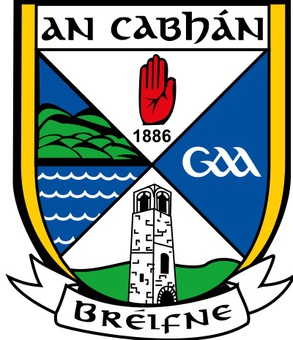
The Cavan County Board or Cavan GAA is one of the 32 county boards of the Gaelic Athletic Association (GAA) in Ireland, and is responsible for the administration of Gaelic games in County Cavan.

The Kilkenny County Board of the Gaelic Athletic Association is one of the 32 county boards of the GAA in Ireland and is responsible for Gaelic games in County Kilkenny. The county board has its head office and main grounds at Nowlan Park and is also responsible for Kilkenny county teams in all codes at all levels. The Kilkenny branch of the Gaelic Athletic Association was founded in 1887.

The Tipperary County Board of the Gaelic Athletic Association (GAA) or Tipperary GAA is one of the 32 county boards of the GAA in Ireland, and is responsible for Gaelic games in County Tipperary and the Tipperary county teams.

The Kerry County Board of the Gaelic Athletic Association (GAA), or Kerry GAA, is one of the 32 county boards of the GAA in Ireland. It is responsible for Gaelic games in County Kerry, and for the Kerry county teams.

The Laois County Board of the Gaelic Athletic Association (GAA) or Laois GAA is one of the 32 county boards of the GAA in Ireland, and is responsible for Gaelic games in County Laois. The county board is also responsible for the Laois county teams.
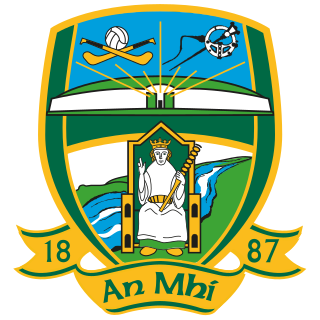
The Meath County Board of the Gaelic Athletic Association (GAA) or Meath GAA is one of the 32 county boards of the GAA in Ireland, and is responsible for Gaelic games in County Meath, as well as for Meath county teams.

The Limerick County Board of the Gaelic Athletic Association (GAA) or Limerick GAA is one of the 32 county boards of the GAA in Ireland, and is responsible for Gaelic games in County Limerick. The county board is also responsible for the Limerick county teams.

The Galway County Boards of the Gaelic Athletic Association (GAA) or Galway GAA are one of the 32 county boards in Ireland; they are responsible for Gaelic games in County Galway, and for the Galway county teams.
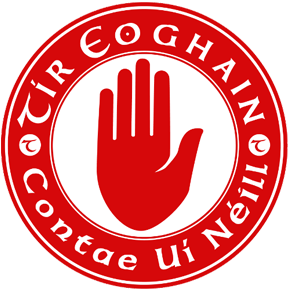
The Tyrone County Board, or Tyrone GAA, is one of the 32 county boards of the Gaelic Athletic Association (GAA) in Ireland, and is responsible for the administration of Gaelic games in County Tyrone, Northern Ireland.
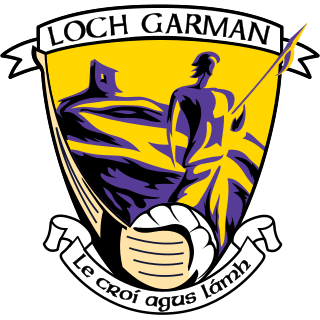
The Wexford County Board of the Gaelic Athletic Association (GAA) or Wexford GAA is one of the 32 county boards of the GAA in Ireland, and is responsible for Gaelic games in County Wexford. The county board is also responsible for the Wexford county teams.

The Down County Board or Down GAA is one of the 32 county boards of the Gaelic Athletic Association (GAA) in Ireland, and is responsible for the administration of Gaelic games in County Down,.

The Wicklow County Board of the Gaelic Athletic Association (GAA) or Wicklow GAA is one of the 32 county boards of the GAA in Ireland, and is responsible for Gaelic games in County Wicklow. The county board is also responsible for the Wicklow county teams.

The Mayo County Board of the Gaelic Athletic Association (GAA) or Mayo GAA is one of the 32 county boards of the GAA in Ireland, and is responsible for Gaelic games in County Mayo and the Mayo county teams.
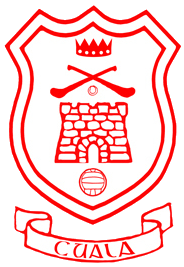
Cuala GAA club is a Gaelic Athletic Association club based in Dalkey in the south of County Dublin, Ireland. It fields teams in Dublin GAA competitions. Cuala is primarily based in a sports and social centre in Dalkey, and also has playing facilities in Glenageary, Meadow Vale/Clonkeen Park, Shankill and Sallynoggin.
The Leinster Senior Football Championship, known simply as the Leinster Championship and shortened to Leinster SFC, is an annual inter-county Gaelic football competition organised by the Leinster Council of the Gaelic Athletic Association (GAA). It is the highest inter-county Gaelic football competition in the province of Leinster, and has been contested every year since the 1888 championship.
Ballyboden St Enda's is a Gaelic Athletic Association club located in Knocklyon, South Dublin, Ireland. The Club serves the Rathfarnham, Knocklyon, Ballycullen, Ballyboden, Ballyroan, Firhouse areas. They offer hurling, camogie, Gaelic football, handball, and rounders. They were founded in 1969 after the merger of 2 clubs in the Rathfarnham area – the Ballyboden Wanderers and Rathfarnham St. Endas.

The Cork County Board of the Gaelic Athletic Association (GAA) or Cork GAA is one of the 32 county boards of the GAA in Ireland, and is responsible for Gaelic games in County Cork and the Cork county teams. It is one of the constituent counties of Munster GAA.
The 2017–18 All-Ireland Senior Club Football Championship was the 48th annual gaelic football club championship since its establishment in the 1970–71 season. The winners receive the Andy Merrigan Cup.

The Dublin county football team represents Dublin in men's Gaelic football and is governed by Dublin GAA, the county board of the Gaelic Athletic Association. The team competes in the three major annual inter-county competitions; the All-Ireland Senior Football Championship, the Leinster Senior Football Championship and the National Football League.



















